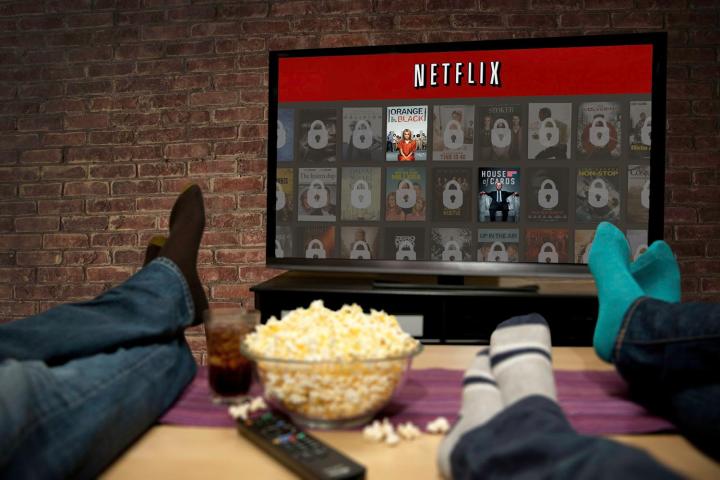
The New York Times boldly declared the summer of 2014 the film industry’s worst since 1997. That’s not good. The Washington Post declared Silicon Valley, not Los Angeles, the media capital of the world. Ouch. Steven Spielberg publicly predicted the “implosion” of the film industry. Yikes.
Meanwhile, Netflix is winning awards, Amazon has built its own studio from scratch, and for the amount of money Facebook recently spent on Whatsapp, they could acquire multiple LA-based movie and TV studios. To many industry observers, it’s inevitable that rich, content-hungry Silicon Valley will absorb — or eliminate — what we currently think of as Hollywood.
And it’s to those people I say: What are you smoking?
Right now, Silicon Valley needs a thriving Hollywood a lot more than Hollywood needs a successful Silicon Valley.
Netflix without Hollywood movies is like Uber without cars
It’s all about content. Silicon Valley simply isn’t in the content-creation business. Nor should they be. It doesn’t make financial sense for them to do so. Making movies and TV is a messy business, fraught with the kind of risk venture capitalists have nightmares about. You can’t produce a $200 million blockbuster with stock options, and there are no algorithms for taste. Every film or TV project is its own start-up, and once the project is finished, you have to start all over again from scratch.
Tech “successes stories” like Twitter and Facebook are having a hard enough time meeting Wall Street expectations, as is.
As is, tech “successes stories” like Twitter and Facebook are having a hard enough time meeting Wall Street expectations. Spending $5 billion to acquire a movie studio, just so they can be in the content-creation game (as opposed to the content-curating game), isn’t going to help solidify their bottom lines. The risk simply isn’t worth the reward.
Silicon Valley currently gets to pick and choose from the best of Hollywood’s offerings without having to take on the risk of producing duds. The importance of that fact cannot be understated. Why buy the cow when you’re getting the milk at predictable, market-driven prices?
Yes, Netflix did get into the content-creation game with much success, but it is very different from your typical tech company. For one thing, Netflix’s streaming business is more-or-less following the HBO playbook. Netflix started with a catalog of older films, building it up over time as it boosted its subscriber base. Producing original content was a natural step to further differentiate its service, just like HBO started to do in the ’80s.

Amazon is a different story. Unlike Netflix, which took its time to evolve from a niche DVD-by-mail service, Amazon Studios sought to make a splash from the onset. Back in 2010, when Amazon first unveiled their studio, the goal was to completely upend the typical Hollywood development process (affectionately known as “Development Hell.”) Amazon Studios billed itself as the open-source platform of the film industry, allowing movie lovers from across the globe to collaborate on content that’d be market tested before a single dollar ever got spent. That ambition got a lot of attention — and a fair amount of criticism. (At this point I should probably mention that I did do some paid script coverage for Amazon Studios back when it first started.) What hasn’t gotten as much attention, though, is Amazon Studios’ shift toward being a much more traditional production company. Take its well-received series Transparent, for example. I assure you, the show’s creator — the ultra-talented Jill Soloway — is not taking notes from RandomAmazonUser1234.
Hollywood is not on fire
Another reason it doesn’t make financial sense for Silicon Valley tech companies to start buying up Hollywood studios – Hollywood isn’t doing nearly as poorly as recent headlines would have you think. The New York Times article I mentioned, about how 2014 is the worst year for summer movies since 1997? There are a lot of problems with it. For one, it’s covers a period of just a few months, which presents only a partial (and rather selective) picture. It also neglected to mention that 2013 was a record-breaking year for Hollywood, which took that crown from 2012. Anyone buying a Hollywood studio right now would pay a major premium to do so.
To suggest that Silicon Valley holds all the cards in this relationship is very misleading.
That’s not to say Hollywood hasn’t hit some stumbling blocks when it comes to new technology. Ultraviolet — the industry’s last-ditch effort to make physical media relevant in the age of the cloud – hasn’t gotten much traction. Studio-owned streaming sites like Sony’s Crackle are still struggling to stand out. Consumers definitely want their movies and TV shows delivered cheaper, faster, and more flexibly, and traditional Hollywood is having trouble making the adjustment. Silicon Valley has earned a seat at the table by offering consumers new delivery methods, and showing Hollywood, quite literally, the money. But to suggest that Silicon Valley holds all the cards in this relationship is very misleading.
The billionaires of Northern California definitely control the future, but right now, in the present, the game is still being played in Southern California. And to everyone craving that a tech company mount a takeover of a traditional media outlet, I’ve got three words for you: AOL-Time Warner.


